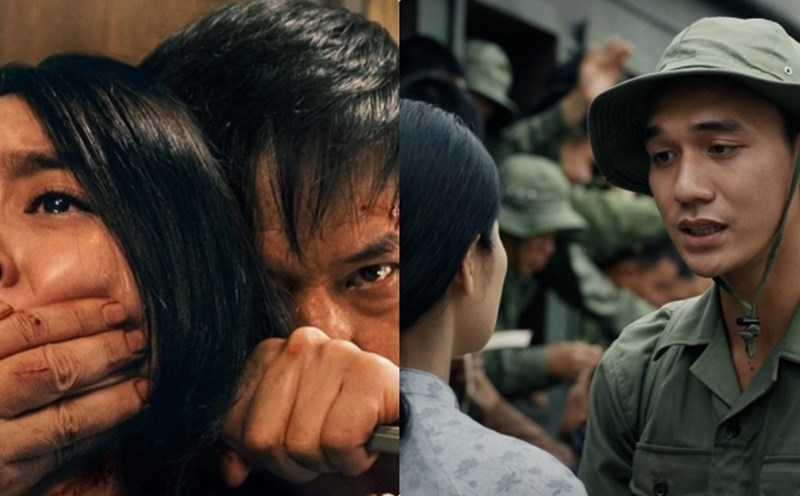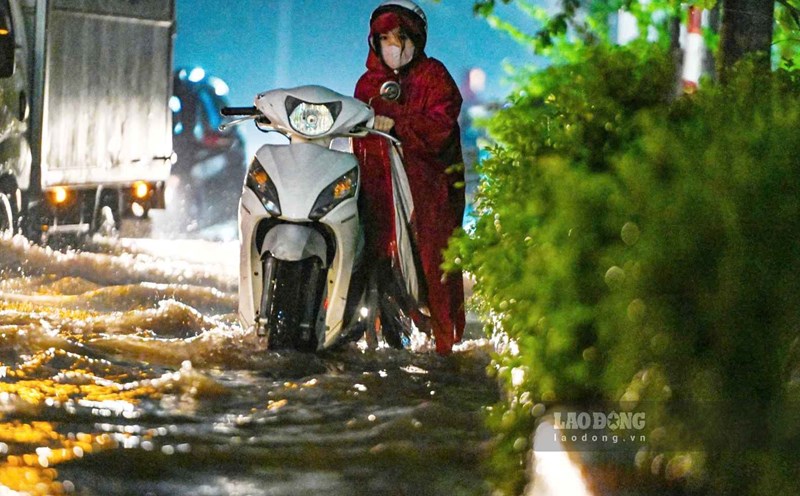If considering Oscar's criteria - which promote human values, artistic uniqueness and influence - it can be said that "Red Rain" is completely worthy of representing Vietnam in the award.
Vietnamese cinema began sending films to participate in the Oscar's "Best International Film" category since 1993, with the work "Scent of the Green Parsley" by overseas Vietnamese director Tran Anh Hung.
Since then, almost every year Vietnam has chosen a work to participate in, recently " Mat Biec" (2020), "Bo Gia" (2021), "578: The Bullets of the crazy People" (2022), "Tro Tan Rieu" (2023) and "Dao, Pho and Piano" (2024).
However, so far, only "Scent of the Blue Parrot" has been nominated in this category. The remaining works all stopped in the preliminary round.
This year, "Red Rain" brings many expectations, promising to make an impression, at least once again "make a mark" - being nominated as "Scent of the Green Parsley" in 1993.
Compared to previous films, "Red Rain" has many outstanding differences in terms of content, media effects and box office revenue - something rarely seen in historical and war films.
After more than 1 month of release, Red Rain achieved a revenue of VND 713 billion, equivalent to about 8.1 million tickets sold - becoming the Vietnamese film with the highest revenue in history to date.
The film's content is based on a global historical setting: 81 days and nights in Quang Tri ancient citadel in 1972 - an event that contributed to the decisive situation of Paris Agreement negotiations.
In writing, everyone dreams of Nobel; making films, everyone hopes to touch Oscar in some way. However, it is also necessary to frankly admit that compared to Oscar standards and the world's leading film industries, Vietnamese cinema still has a gap.
We lack scripts that are in-depth enough to both attract domestic audiences and touch the value of universal humanity. Production technology - from film set, special effects, sound to lighting... is still limited compared to international standards.
The storytelling is still quite safe, with few creative breakthroughs. The film ecosystem is still small, the domestic market is small, and there is a lack of an effective international promotion and distribution strategy.
In addition, the cultural industry has not developed synchronously, and human resource support and training policies are still limited.
This is also part of the reason why many Vietnamese films before "Red Rain", except for "Scent of the Green Parrot" by an overseas Vietnamese director, when attending the Oscar, only stopped at the "participation" level, not leaving a real mark.
However, sending a film to the Oscar, regardless of the result, still brings many values to Vietnamese cinema. Because it is an opportunity for us to understand where we are on the world cinema map, thereby adjusting our development strategy to be more suitable in the future.
Cinema is not only an art, but also a tool to promote the national image. A film that honors the spirit of sacrifice and the desire for peace of the nation in the 81 days and nights war in Quang Tri, when it reaches an international audience, is also Vietnam's way of telling history in cinematic language.
This is a long-term value, far beyond the framework of an award.
Oscar is not only a place to determine the winner, but also a forum for film industries to affirm their own identity.
The biggest hope is placed in Red Rain not only in how deep it can go, whether it can be nominated or not, but also in that through this journey, we know where Vietnamese cinema is standing, what needs to be changed to become more mature, more courageous and integrate more fairly.












